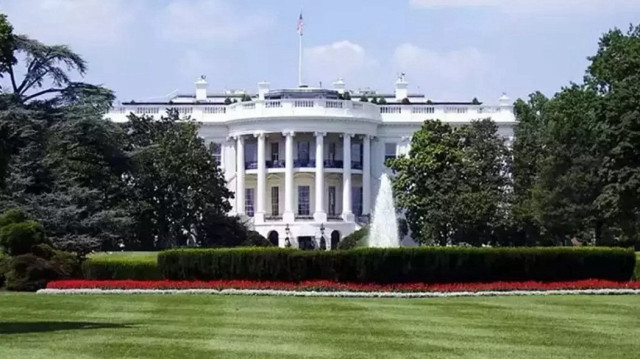
'We recognize they have that right, and they're an important NATO ally,' says White House
The White House acknowledged Tuesday Türkiye's "legitimate counterterrorism threat" in Syria, but said it would maintain support for its YPG/PKK-led Syrian partner.
National Security Council spokesperson John Kirby said Ankara has "a right to defend their citizens and their territory against terrorist attacks," noting Türkiye has "come under those kinds of terrorist attacks in the not so distant past."
"We recognize they have that right, and they're an important NATO ally," Kirby told reporters.
"We have interests, as I said, in going after ISIS, and that means partnering with the Syrian Democratic Forces, and that will continue, and where those two goals overlap or potentially conflict, we will have, as we have, we will have the appropriate conversations with the with the Turks, about how both those outcomes can be achieved," he added.
He was referring to the SDF, the US's primary anti-Daesh/ISIS partner in Syria. The group is led by the YPG, the Syrian offshoot of the PKK, a designated terrorist group in the US and Türkiye. Washington's support for the SDF has greatly exacerbated tensions in bilateral relations between the NATO allies.
Amid ongoing clashes between the SDF and the Türkiye-backed Syrian National Army, Kirby said the US is "not in a position to verify the exact operational status of" the key city of Manbij, but said the administration has "been in close contact with the Turks about this, and certainly remain in close contact with the Syrian Democratic Forces."
Kirby said the US is "absolutely concerned" about the security of detention facilities used to hold Daesh/ISIS detainees in Syria. Most of the facilities, particularly those in eastern Syria, are run by the SDF.
"Some of these detention facilities do house ISIS fighters, largely of a lower level, but nevertheless, ISIS fighters. And so we are talking to all of our counterparts, including the Turks, about the status of those detention facilities and about our collective concern of the potential for them to be opened up, or for people to be able to get out," he said.
"Most of them in the east are run by the SDF, who are our partners, and so we know we can rely on their ability to continue to properly safeguard those facilities, the ones that are in the in the east, but it is a concern, no question about it," he added.

